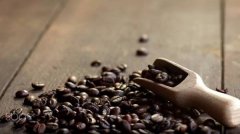Overthrow the Theory of Coffee injuring liver British Research proves that drinking Coffee can protect liver
For professional baristas, please follow the coffee workshop (Wechat official account cafe_style)
Taiwan is an area with a high prevalence of hepatitis B. it was once known as the "country of liver disease." about 10% of the people died of liver disease or liver cancer. In addition to vaccination and regular screening to stop the spread of liver disease, there is also a magic weapon to protect the liver that we can see every day. That's-coffee.
Scientific Research overturns the Theory of Coffee injuring liver
In Taiwan, there are a variety of specialty coffee shops, and convenience stores also offer hot coffee services. many people are used to having a cup of coffee in the morning to wake up and start a good mood for the whole day. Or when staying up late at overtime, have a cup of coffee to cheer you up and spend a long night. In the past, it was thought that caffeine intake may hurt the liver, because the liver is the base of the body's metabolism, and the caffeine we consume is also metabolized through the liver, so there is a saying that drinking coffee hurts the liver. However, scientific research has shown completely opposite results, overturning the theory that coffee damages the liver.
Drinking coffee can reduce the incidence of liver cirrhosis and liver cancer
Early studies have found that caffeine can reduce the inflammation and damage of the liver after the animal liver is damaged by toxin. The Swedish study also found that drinking two cups of coffee a day reduced the risk of liver cancer by 40 percent. The World Health Organization (WHO) publicly announced in 2016 that drinking coffee can help people prevent liver and uterine cancer. A collaborative study by the University of Southampton and the University of Edinburgh, published in the British Medical Journal Electronic News, analyzed 26 data indicators from 2.25 million people and found that coffee drinkers were 20 per cent less likely to develop hepatocellular carcinoma (HCC) than those who did not drink coffee, and those who drank two cups of coffee a day reduced their risk by 35 per cent, and even drank decaf coffee to protect the liver. Professor Peter Hayes of the University of Edinburgh said their research has shown that coffee is associated with reducing the incidence of liver cirrhosis and liver cancer and is an excellent natural medicine as long as it is not consumed too much.
Intake of chlorogenic acid can avoid obesity and fatty liver
The ingredients in coffee have antioxidant and anti-inflammatory properties, which can be used to explain why coffee drinkers are less likely to suffer from liver disease and liver cancer. Among them, the "chlorogenic acid" (Chlorogenic acid) in coffee beans is the main ingredient that affects the taste of coffee fruit acid. Wei Wenyin, associate researcher of the Biotechnology Center, said: "International literature has reported that chlorogenic acid can lower human blood pressure 1 and promote the goal of antioxidation by up-regulating the expression of NQO1 antioxidant enzyme 2, and it can slow down the process of glucose release into the bloodstream after meal 3. At the same time, chlorogenic acid has the function of PPARa agonist, which can reduce body fat, promote metabolism and avoid obesity and fatty liver. " Many foods contain chlorogenic acid, but coffee is the food with the most chlorogenic acid. The content of chlorogenic acid will vary with the degree of roasting of coffee beans, chlorogenic acid will produce chemical cracking reaction at high temperature, so the longer the roasting, the lower the chlorogenic acid content of beans. When choosing coffee beans in the future, in addition to the flavor and taste, you can also take the baking time into consideration.
Comparison table of medium and shallow roasted coffee beans

Reference materials:
Yamaguchi T, et al Hydroxyhydroquinone-free coffee: a double-blind, randomized controlled dose-response study of blood pressure. Nutr Metab Cardiovasc Dis. (2008)
Greenberg JA, et al Coffee, tea and diabetes: the role of weight loss and caffeine. Int J Obes (Lond). (2005)
Johnston, K. L.; Clifford, M. N.; Morgan, L. M. Coffee acutely modifies gastrointestinal hormone secretion and glucose tolerance in humans: glycemic effects of chlorogenic acid and caffeine. Am. J. Clin. Nutrit 2003-10, 78 (4): 728 Murray 733.
Zt ü rk N, Tun ç el M Assessment of phenolic acid content and in vitro antiradical characteristics of hawthorn. J Med Food. (2011)
Important Notice :
前街咖啡 FrontStreet Coffee has moved to new addredd:
FrontStreet Coffee Address: 315,Donghua East Road,GuangZhou
Tel:020 38364473
- Prev

Suspected debt pressure coffee shop owner committed suicide by burning charcoal
Professional barista communication Please follow the Coffee Workshop (Wechat official account cafe_style) was once a family shareholder of a well-known compound coffee restaurant chain in Tainan, and then ran away from the owner surnamed Wang, who created her own brand in Anping District. Recently, suspected of debt pressure, she was forced by the bank to leave a suicide note at the counter in the store on the evening of the 30th. At 10:00 on the 31st, she was found committing suicide by burning charcoal in her home in the North District. 53 years old
- Next

It is more expensive than Starbucks, with hundreds of cups per day in a single store, and Seesaw coffee won round An of Hony 45 million yuan.
Professional baristas exchange please follow the coffee workshop (Wechat official account cafe_style) Xinya NewSeed (Wechat ID:pelink) news on June 2, boutique coffee chain brand Seesaw has recently completed 45 million yuan A round of financing, investor Pak Fu Holdings (Hongyi Investment Restaurant Investment Management platform). After the completion of this round of financing, Seesaw will continue to go to Beijing and Shenzhen
Related
- Can lightly roasted coffee beans be used to extract espresso? How finely should you grind high-quality coffee beans to make Italian latte?
- What is the difference between the world's top rose summer coffee and Yejia Shefi? What are the flavor characteristics of Yega Shefi coffee and Panama rose summer?
- The ceremony is full! Starbucks starts to cut the ribbon at a complimentary coffee station?!
- A whole Michelin meal?! Lucky launches the new "Small Butter Apple Crispy Latte"
- Three tips for adjusting espresso on rainy days! Quickly find the right water temperature, powder, and grinding ratio for espresso!
- How much hot water does it take to brew hanging ear coffee? How does it taste best? Can hot water from the water dispenser be used to make ear drip coffee?
- What grade does Jamaica Blue Mountain No. 1 coffee belong to and how to drink it better? What is the highest grade of Blue Mountain coffee for coffee aristocrats?
- What are the flavor characteristics of the world-famous coffee Blue Mountain No. 1 Golden Mantelin? What are the characteristics of deep-roasted bitter coffee?
- Can I make coffee a second time in an Italian hand-brewed mocha pot? Why can't coffee be brewed several times like tea leaves?
- Hand-brewed coffee flows with a knife and a tornado. How to brew it? What is the proportion of grinding water and water temperature divided into?

